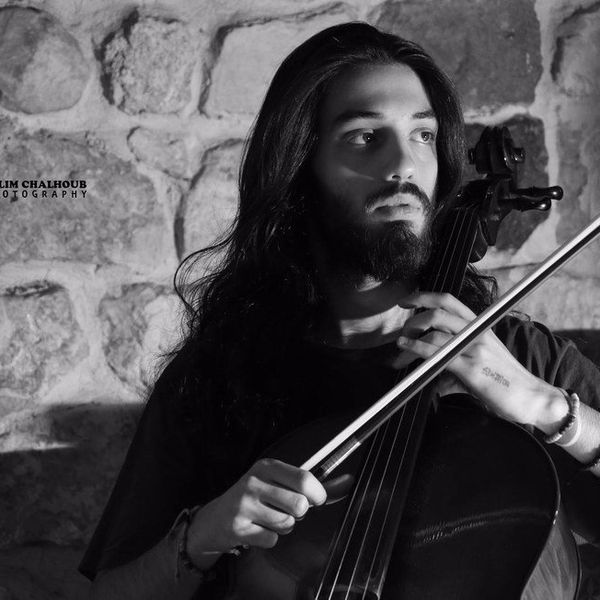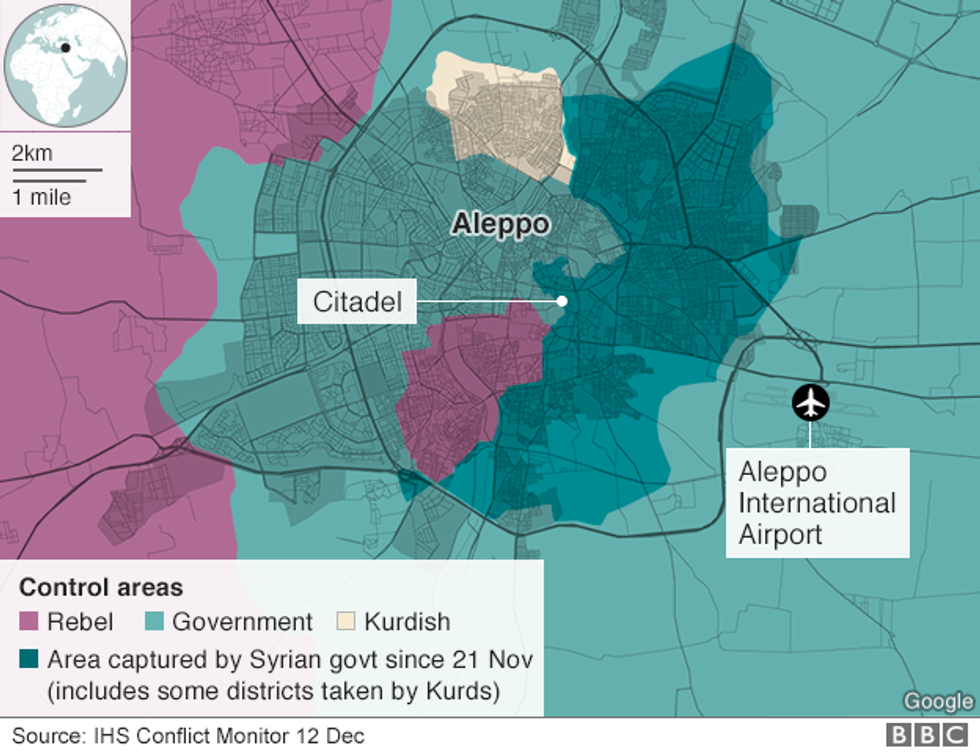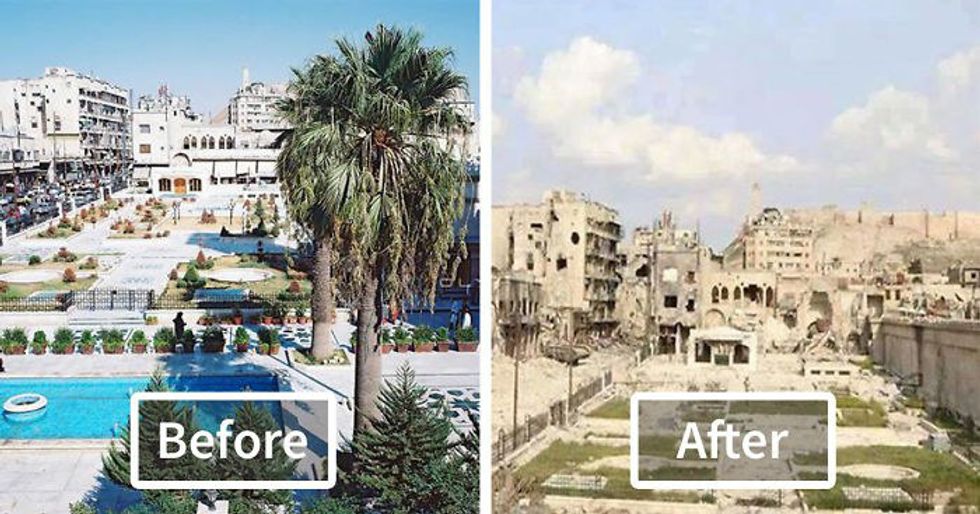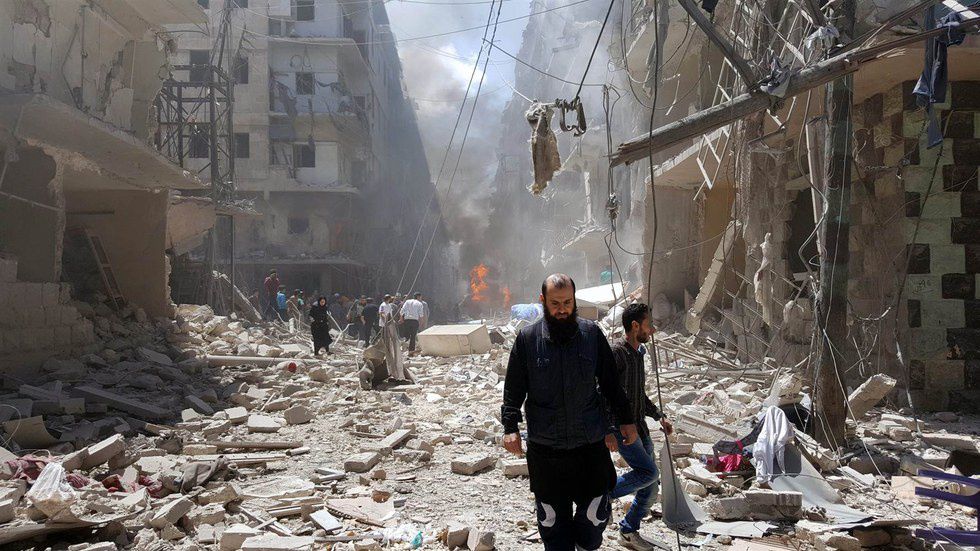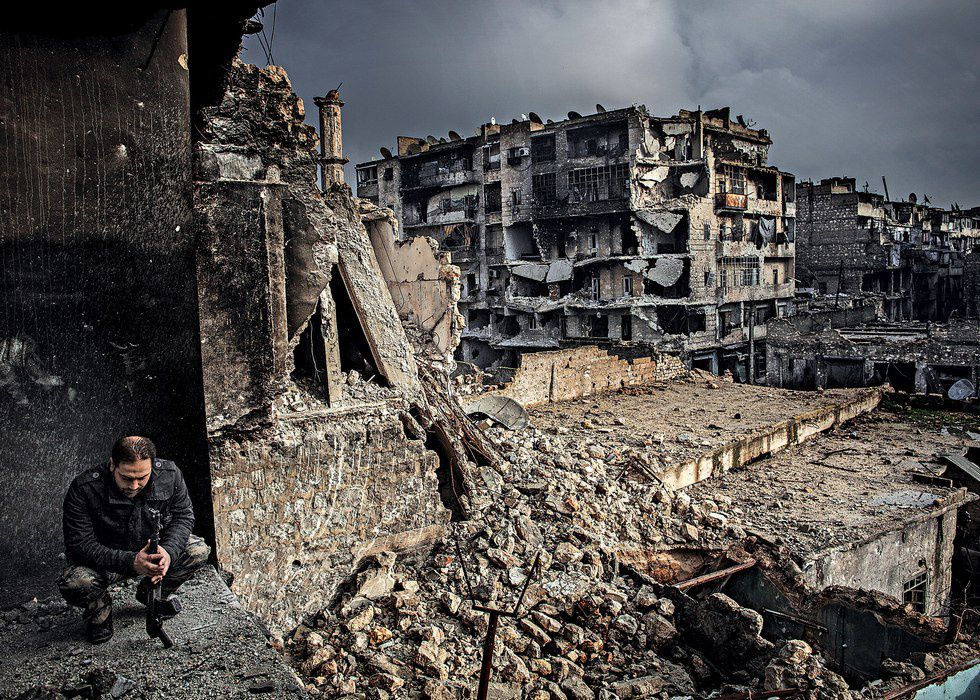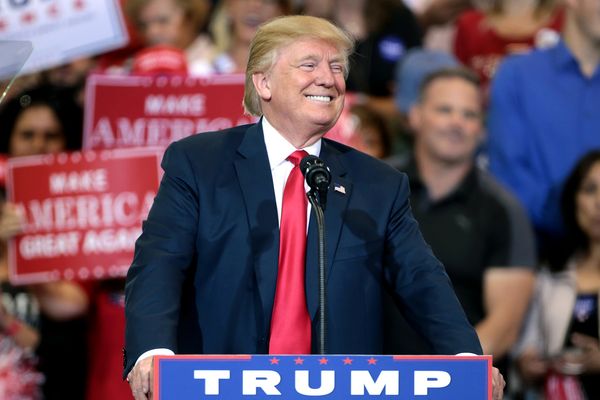The Syrian Civil War has reached a climax with Aleppo’s downfall. It remains to be seen if this is the end of the war, but Bashar al-Assad’s victory over rebel forces in Aleppo is decisive.
Aleppo was the center of the resistance against the Syrian government since 2012. The resistance fragmented into different groups, some more extreme than others, each with their own goals, yet all facing a common enemy in President Assad. Both sides faced a stalemate, as neither the government nor its myriad opposition could break the other’s forces and fully retain the city. Russia changed this equation.
That purple area has been shrinking. It is now nonexistent.
Russia’s involvement was at first diplomatic. As a permanent member of the UN Security Council, it blocked all UN resolutions that tried to achieve a political settlement to the conflict. This gave way to extensive military support for the Assad regime, providing heavy equipment, fuel for transportation, ammunition, explosives, military advisors, and aerial bombardment. Russian authorities claim that this aid was specifically aimed against military targets as identified by the Assad regime: in other words, it was supposedly against ISIS and co. Bashar al-Assad and Vladimir Putin have both characterized these as terrorist groups responsible for the war. But there is a lot of evidence that Russia has also targeted civilians. You know all those videos about Syria shared on FB? Russia either caused all that damage itself or gave the ammunition for it.
Of course, Russia has its own strategic interests for getting involved in Syria. All the death and destruction in Aleppo has a geopolitical purpose, and Russia is on the verge of realizing that purpose. Bashar al-Assad remains one of the few friends Russia has left in the world, and now he owes his regime’s existence to them. By staying involved in the conflict, Russia has assured its economic ties and a steady stream of business for its weapons industry.
President Putin has also removed the possibility of a Syria under control of an unfriendly, perhaps extreme Islamist government. ISIS and many other groups against the Assad regime are in fact terrorist groups, inspired by al-Qaeda and the Taliban. Whatever war crimes Bashar al-Assad has committed since 2012, he is by all means a moderate and secular force in Syria. His government is seen as a great stabilizer by his own followers compared to extreme Islamist teachings of ISIS. President Bashar has successfully propagated himself as the one to hold all those crazy religious people at bay, even if that means he has to kill every single one of them. He is also seen as the better alternative among the religious and ethnic minorities of Syria, who surely be persecuted under ISIS rule. This includes Christians, Yazidis, and the Alawites, which is the branch of Islam that Assad and his family subscribes to. For these minority communities, the civil war is a fight for their survival and President Assad has proven to be their defender, if not moral leader. This is how I imagine President Assad and his followers view themselves. This narrative fulfills Russia’s goal of retaining a friendly regime near its borders.
This chapter in history is still unfolding, but it is nearing its end. Aleppo is under government control and the Idlib province remains the last center of resistance against Assad. With no appetite for intervention in Europe and with a new isolationist president in the US, the resistance will get no help. Idlib province will fall in time too.
A summit was held on January 24 with Syria, Russia, Turkey, and Iran about a settlement to the conflict. It is clear that Russia wants a settlement that it can claim it brokered, which fits President Putin’s vision of a resurgent Russia on the world stage. Russia also has an interest in strengthening its relationship with Turkey. The two were at odds throughout the war, as Turkey received a huge burden with refugee inflows, but that can now be put behind them. Russia, Iran, and Turkey will likely try to secure a ceasefire. Whatever the outcome of this summit, President Assad has largely won his war and will remain in power.
An actual gif of President Assad celebrating
Neither the United States nor any NATO country was invited to the summit. The summit itself took place in Kazakhstan, in the former Soviet bloc. These two facts are significant. They represent an erosion of the world order in which the US was the center of gravity in geopolitics. Since World War II, the US was involved in most global affairs, even if it did not tie into its interests. Now a major international conflict is being resolved without its participation. With a new president who has exhibited isolationist behavior, no one really knows what this means for the future of global affairs.

